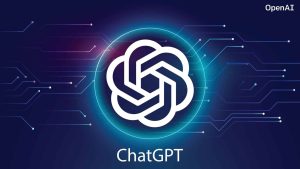Navigating the AI Landscape: 11 Cutting-Edge Alternatives to ChatGPT in 2023
ChatGPT has paved the way for advanced artificial intelligence models, leveraging natural language for various applications. With its natural language understanding, automated search, and response capabilities, and integration with customer service systems, ChatGPT has become a versatile tool. This blog explores 11 alternatives to ChatGPT, each offering unique features and benefits.
1. Google Bard:
Google Bard, powered by Google’s LAMDA, stands as a competitor to ChatGPT. Despite its extraordinary language prediction abilities, Bard has demonstrated occasional inaccuracies, emphasizing the need for careful information verification.
2. Microsoft Bing Chat:
Microsoft Bing’s upgraded chat feature, codenamed Sydney, competes with ChatGPT, boasting enhanced accuracy and speed. This illustrates the growing competition in the AI market beyond Google.
3. Jasper.ai:
Jasper.ai, a cloud-based conversational AI platform, utilizes Open’s GPT-3.5 alongside internal NLU models. It excels in tasks related to customer service, sales, marketing, and content creation, making it a robust alternative.
4. Claude by Anthropic:
Anthropic’s Claude, a next-gen AI assistant, emphasizes helpfulness, honesty, and harmlessness. It supports various tasks, including summarization, creative writing, coding, and more. Claude Instant offers a lighter and faster option.
5. ChatSonic:
ChatSonic, claiming to be powered by Google Search, focuses on factual content creation about real-time events. While the capabilities are intriguing, caution is advised, especially regarding the processing of current information.
6. NeevaAI:
NeevaAI merges ChatGPT with specific language models, providing a unique search engine experience. It promises a tracker-free and ad-free browsing experience with accurate and precise responses.
7. YouChat by You.com:
YouChat, an AI search assistant, allows users to engage in human-like conversations within search results. Offering real-time data and source citations, YouChat supports complex questions, logical reasoning, language learning, and content creation.
8. Perplexity:
Perplexity AI’s conversational search engine uses OpenAI’s GPT-3.5 API and responds by citing sources from the web. It offers follow-up questions, enabling users to delve deeper into specific topics.
9. Character.AI:
Character.AI focuses on AI personalities, offering chat-like experiences with various characters. While more entertainment-oriented, it provides a unique experience compared to other tools in the market.
10. Elicit:
Elicit positions itself as an AI research assistant, specializing in efficient literature reviews. It extracts summaries from relevant research papers, prioritizing accuracy and veracity.
11. Learnt.ai:
Learnt.ai caters specifically to education professionals, using the GPT language generation model to automate tasks such as creating lesson plans, learning objectives, and assessment questions.
The AI marketplace is evolving rapidly, with various alternatives to ChatGPT offering specialized features. While these tools can be valuable for specific tasks, it’s essential to recognize their limitations compared to human expertise, especially in fields like SEO where analysis and creativity are crucial. The future holds exciting possibilities as AI continues to advance and diversify.







